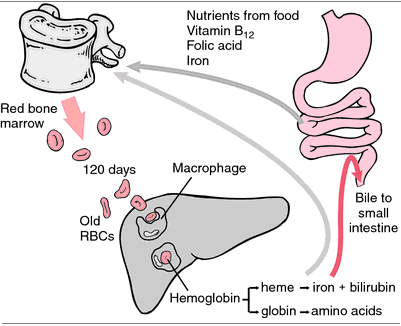Hemoglobin, commonly abbreviated as Hb, is a vital protein found in red blood cells. It plays a crucial role in transporting oxygen throughout the body and maintaining overall health. Understanding the abbreviation of hemoglobin and its significance is essential for comprehending how our bodies function efficiently.
What Is Hemoglobin?
The Structure and Role of Hemoglobin
Hemoglobin is a protein molecule composed of four subunits. Each subunit contains an iron atom that binds to oxygen, facilitating oxygen transport from the lungs to various tissues and organs. It also aids in transporting carbon dioxide back to the lungs for exhalation.
Importance in the Body
Without sufficient hemoglobin, cells and tissues wouldn’t receive the oxygen needed for energy production. This deficiency can lead to symptoms like fatigue, shortness of breath, and anemia.
Key Points:
- Hemoglobin ensures efficient oxygen delivery.
- Its abbreviation, Hb, is universally recognized in medical contexts.
- Regular blood tests help monitor Hb levels for optimal health.
The Benefits of Understanding Hb
- Monitoring Health: Knowing your Hb levels can help detect health issues like anemia early.
- Improved Diagnosis: Awareness allows for better communication with healthcare providers.
- Enhanced Awareness: Understanding the abbreviation of hemoglobin promotes informed health decisions.
Side Effects of Abnormal Hb Levels
Low Hb Levels
Low hemoglobin, known as anemia, can cause:
- Fatigue
- Weakness
- Dizziness
- Pale skin
High Hb Levels
Elevated Hb levels may lead to:
- Blood clot risks
- Headaches
- High blood pressure
Managing Abnormal Hb Levels
Consulting a healthcare provider is crucial for addressing abnormalities. Dietary changes, supplements, or medications may be recommended.
Common FAQs About Hb
1. What does Hb stand for in a blood test?
Hb is the abbreviation for hemoglobin, a protein that transports oxygen in the blood.
2. What is a normal Hb level?
Normal Hb levels range between 13.8–17.2 g/dL for men and 12.1–15.1 g/dL for women.
3. Can low Hb be treated?
Yes, treatments include dietary changes, supplements, and addressing underlying conditions.
Benefits of Healthy Hb Levels
- Enhanced Energy: Proper Hb levels ensure adequate oxygen supply, boosting energy.
- Better Immune Function: Oxygen-rich blood supports immune responses.
- Overall Well-being: Balanced Hb levels contribute to improved physical and mental health.
Customer Reviews on Hb Management
- “After learning about Hb and monitoring my levels, I feel more energized and healthier than ever!” – Sarah L.
- “Understanding the abbreviation of hemoglobin helped me communicate better with my doctor.” – Mark T.
- “Managing my Hb levels has been a game-changer for my overall wellness.” – Priya K.
LSI Keywords
- Red blood cells
- Hemoglobin levels
- Oxygen transport
- Low hemoglobin
- High hemoglobin
- Hemoglobin deficiency
- Blood test results
Conclusion
Understanding Hb, the abbreviation for hemoglobin, is vital for maintaining good health. By monitoring your Hb levels and addressing abnormalities, you can ensure efficient oxygen transport and overall well-being. Regular check-ups and informed health decisions empower you to live a healthier, more vibrant life.
